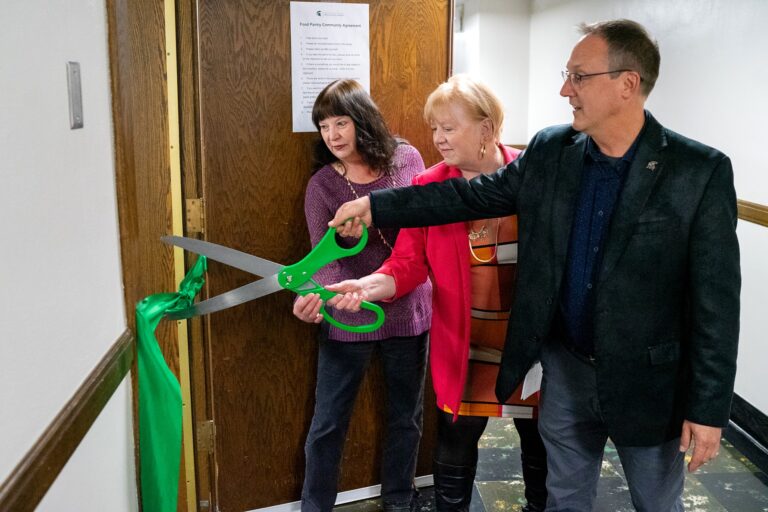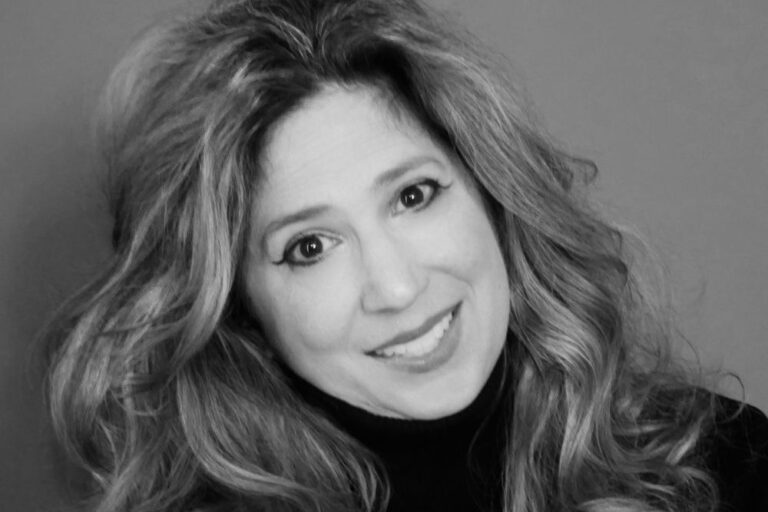In this Faculty Voice, Brad Willcuts, Associate Professor of Musical Theatre and Choreography in the MSU Department of Theatre, shares how theatre pushes the limits of human emotion and why Pride Month in June is important to him and the greater theatre community.
In the role of choreographer, Willcuts also discusses being a part of a new interpretation of one of the longest running musicals, The Fantasticks. The musical has been rewritten by the show’s original book writer and lyricist Tom Jones, in collaboration with Flint Repertory Theatre Producing Artistic Director Michael Lluberes, to reimagine the young lovers at the center of the story as two young men. Willcuts says this plot re-envisions a love story for the LGBTQ+ community, as well as retells a well-known musical theatre story in a poignant and modern way.
The national release of the rewritten and reimagined musical The Fantasticks is playing June 3-19 through the Flint Repertory Theatre in Flint, Michigan.
__________________________________________________________________________________________
I’ve been a professional theater maker for pretty much my entire life. I started out when I was nine. I was a rowdy kid always getting into trouble, and my mother wanted me out of the house. There was an advertisement for Annie the musical through the Walla Walla Community College Summer Musical, in Walla Walla, Washington, that needed to a lot of young people. I auditioned and discovered this perfect balance between the ability to play and be creative mixed with the high stakes need to be professional and represent the people you’re working with responsibly. It was a good balance for me.
I was a professional performer for many years, and then received my MFA at Virginia Commonwealth University. After that I was looking for jobs in the college arena, at the same time I started working on a new show on Broadway called Amazing Grace. Shortly after that, I was hired as a faculty member at Michigan State University in the Department of Theatre, and so my family packed up and moved to Michigan in 2015.

I was awarded tenure recently, and now I’m an Associate Professor overseeing the musical theatre and dance minors. Also, as a part of the acting faculty, I work in other various class scenarios and on various types of productions here.
What I love about teaching is involving students in what’s new and upcoming in the musical theatre landscape. I program direct the ĭmáGen New Musical workshop in the fall at the Pasant Theater. As part of this program, we bring in a musical that needs workshopping before it is ready for commercial theater and Broadway. We use our students and the musical’s creative team to put the show together in two weeks.
That type of experiential learning is important for students, and it’s exciting for them to be part of forward-thinking nature of what’s coming next in theatre. Oftentimes, consistent theatre work gives students the best sort of education in theatre. That was the thing that was so tragic about the pandemic: the performing arts are usually the first to go and the last to come back.
We talk theoretically all the time, but in something like musical theater, it’s the application that really is the thing that locks it into place for students. That’s the thing that was taken away during the pandemic. We had to be purely theoretical for a while.
Being the choreographer on a newly rewritten and reimagined musical theatre classic, The Fantasticks, feels like the perfect thing for me to be doing right now. I like to be a part of reclaiming a story for the LGBTQ+ community. Given what we are experiencing across our country right now, it is really important and quite special to me.

The Fantasticks has a significantly long history. Anybody who knows anything about musical theatre is going to know it. The writer, Tom Jones, was in his early 90s when Michael Lluberes first contacted him with the idea to reframe the show. Michael Lluberes is the artistic director at Flint Repertory Theatre, and he loves the show, but as a member of the LGBTQ+ community, he didn’t feel like that show had a sort of representation for him. He challenged Tom Jones to see if he could rewrite the show for two gay men.
At first, Tom Jones was reticent to do it, but Michael kept pushing and eventually Tom did update the show. The script has been altered to be more inclusive of this type of relationship and of the new casting of mothers to the lovers instead of fathers. This new retelling of The Fantasticks premiered nationally on June 3 through the Flint Repertory Theater. It’s never been done this way. It’s beautiful in its simplicity.
“Being able to bring something that is a new retelling of a well-known show [The Fantasticks], to have my choreography mark on it, and for it to be a world premiere in Michigan is exciting. Having the premiere coincide with Pride Month serves to remind us of the impact of representation on American stages.”
For me, being able to bring something that is a new retelling of a well-known show, to have my choreography mark on it, and for it to be a world premiere in Michigan is exciting. Having the premiere coincide with Pride Month serves to remind us of the impact of representation on American stages.
The LGBTQ+ community and the theatre are inextricably linked. Because of that, I’ve spent my entire career as an ally for the people who are my most trusted colleagues and dearest friends.

The Fantasticks has been a cisgendered, straight staple of regional and community theatre for 60 years. It’s time now to have it be told in a different way. It’s quite simply about falling in love and growing up. That’s not a heteronormative human experience, it’s a story that is relevant to everyone. The re-imaging embraces the importance of The Fantasticks in the lexicon of American Theatre while taking a step towards equity in the art form.
The theatre has the power to help create change. When you’re in a theater, the palpable energy that you receive between an audience and cast is unlike anything else. It has the power to open people’s eyes in a way that’s different from other art forms. In a way, we’re always living in a heightened state of un-comfortability in the theatre, almost on the margins of our emotions.
The arts often pull us out of the doldrums of the normal life, and so the people who dedicate their lives to the arts are also dedicating their life to a lack of comfortability because they are constantly dealing with things on the margins to provoke, incite, and excite the people who are participating with them in these experiences.
The arts are the lifeblood of our humanity, and theatre is a way of reflecting that humanity back on us.


